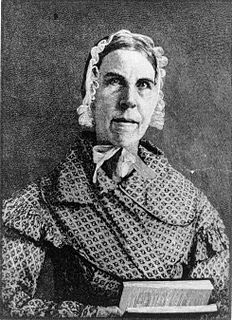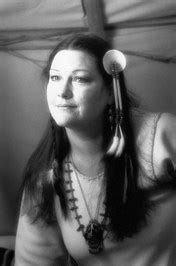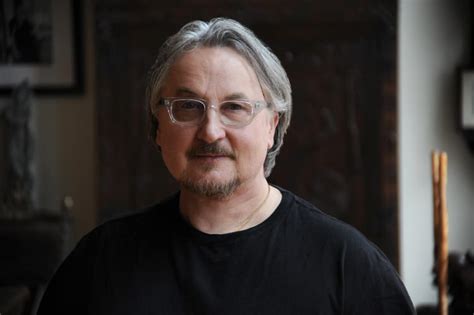A Quote by Angelina Grimke
When human beings are regarded as moral beings, sex, instead of being enthroned upon the summit, administering upon rights and responsibilities, sinks into insignificance and nothingness. My doctrine then is, that whatever it is morally right for man to do, it is morally right for woman to do. Our duties originate, not from difference of sex, but from the diversity of our relations in life, the various gifts and talents committed to our care, and the different eras in which we live.
Quote Topics
Being
Beings
Care
Committed
Difference
Different
Different Eras
Diversity
Doctrine
Duties
Eras
Gifts
Gifts And Talents
Human
Human Being
Human Beings
Insignificance
Instead
Life
Live
Man
Moral
Morally
Nothingness
Our
Regarded
Relations
Responsibilities
Right
Rights
Rights And Responsibilities
Sex
Summit
Talents
Then
Various
Whatever
Which
Woman
Related Quotes
Measure her rights and duties by the unerring standard of moral being… and then the truth will be self-evident, that whatever it is morally right for a man to do, it is morally right for a woman to do. I recognize no rights but human rights – I know nothing of men’s rights and women’s rights; for in Christ Jesus, there is neither male nor female. It is my solemn conviction, that, until this principle of equality is recognised and embodied in practice, the Church can do nothing effectual for the permanent reformation of the world.
I prize the purity of his character as highly as I do that of hers. As a moral being, whatever it is morally wrong for her to do,it is morally wrong for him to do. The fallacious doctrine of male and female virtues has well nigh ruined all that is morally great and lovely in his character: he has been quite as deep a sufferer by it as woman, though mostly in different respects and by other processes.
The first lesson, simple as it is, is that whatever court we're in, whatever we are doing, at the end of our task some human being is going to be affected. Some human life is going to be changed by what we do. And so we had better use every power of our minds and our hearts and our beings to get those rulings right.
For no phase of life, whether public or private, whether in business or in the home, whether one is working on what concerns oneself alone or dealing with another, can be without its moral duty; on the discharge of such duties depends all that is morally right, and on their neglect all that is morally wrong in life.
History leaves no doubt that among of the most regrettable crimes committed by human beings have been committed by those human beings who thought of themselves as civilized. What, we must ask, does our civilization possess that is worth defending? One thing worth defending, I suggest, is the imperative to imagine the lives of beings who are not ourselves and are not like ourselves: animals, plants, gods, spirits, people of other countries, other races, people of the other sex, places and enemies.
The pre-scientific age, whatever its deficiencies, had at least offered its members the peace of mind that follows from knowing all man-made achievements to be nothing next to the grandeur of the universe. We, more blessed in our gadgetry but less humble in our outlook, have been left... having no more compelling repository of veneration than our brilliant, precise, blinkered and morally troubling fellow human beings.
I want to stress again that human rights are not peripheral to the foreign policy of the United States. Our pursuit of human rights is part of a broad effort to use our great power and our tremendous influence in the service of creating a better world, a world in which human beings can live in peace, in freedom, and with their basic needs adequately met.
Forgiveness and the release of the past open the creative flow of life, supporting all levels of mind, heart, body, emotion, and spirit. This energy flow determines the state of our health, our desire to create and procreate, our willingness to develop our gifts, and how we use or deny the life force that we are given as human beings. . . . by choosing to let go of the past, our fears, and our negative patterns or reactions to life, we are suddenly funded with a resurgence of life force, which propels us into a newfound way of being and a very different way of understanding the world.
99% of our uses of animals, including our numerically most significant use of them for food, do not involve any sort of necessity or any real conflict between human and nonhuman interests. If animals matter morally at all, then, even without accepting a theory of animal rights, those uses of animals cannot be morally justified.
In the Universal Declaration of Human Rights (December 1948) in most solemn form, the dignity of a person is acknowledged to all human beings; and as a consequence there is proclaimed, as a fundamental right, the right of free movement in search for truth and in the attainment of moral good and of justice, and also the right to a dignified life.




































